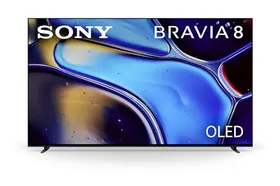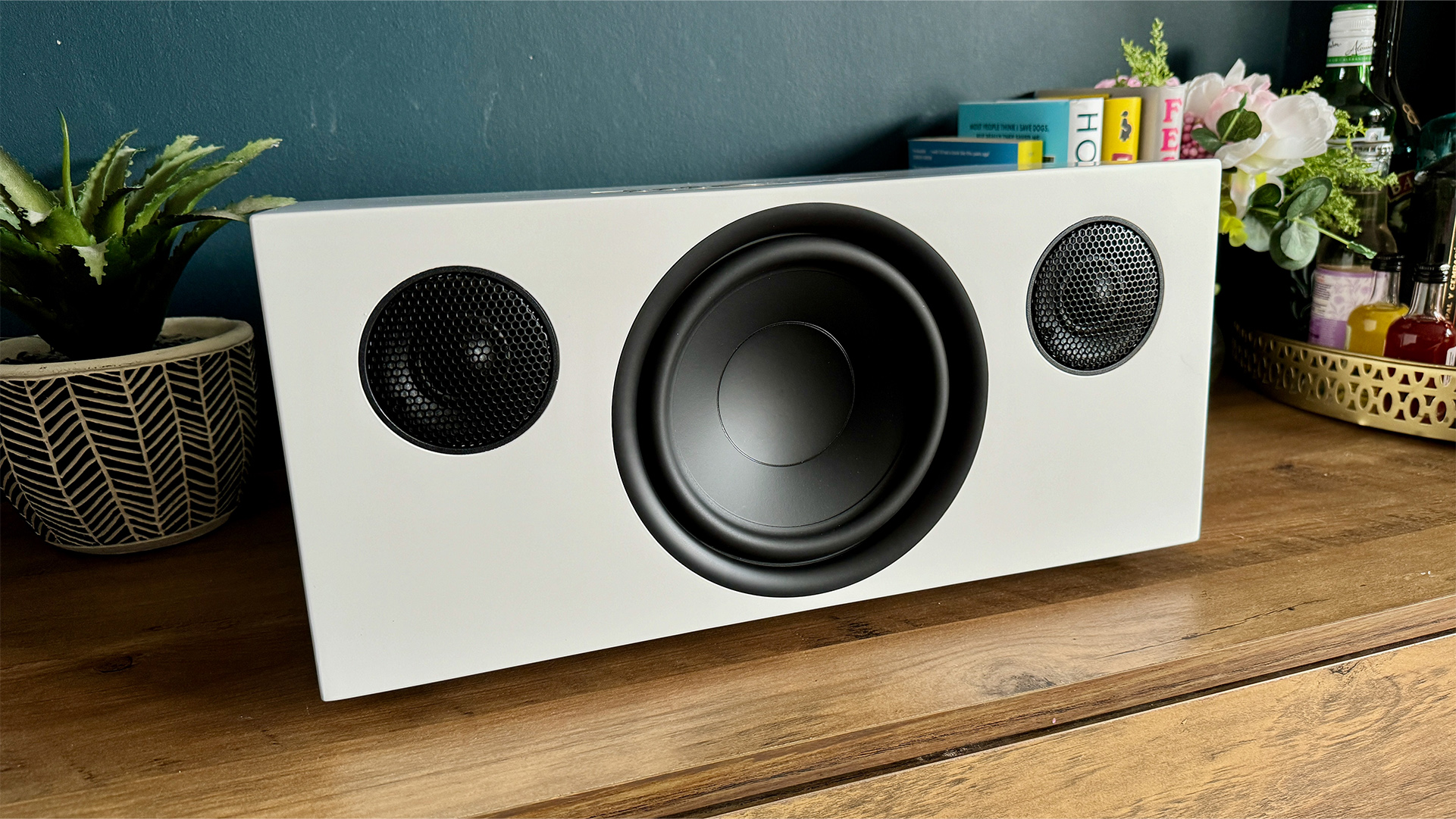Sony Bravia 8 vs LG C4: which 2024 OLED TV should you buy?
Step-down models do battle
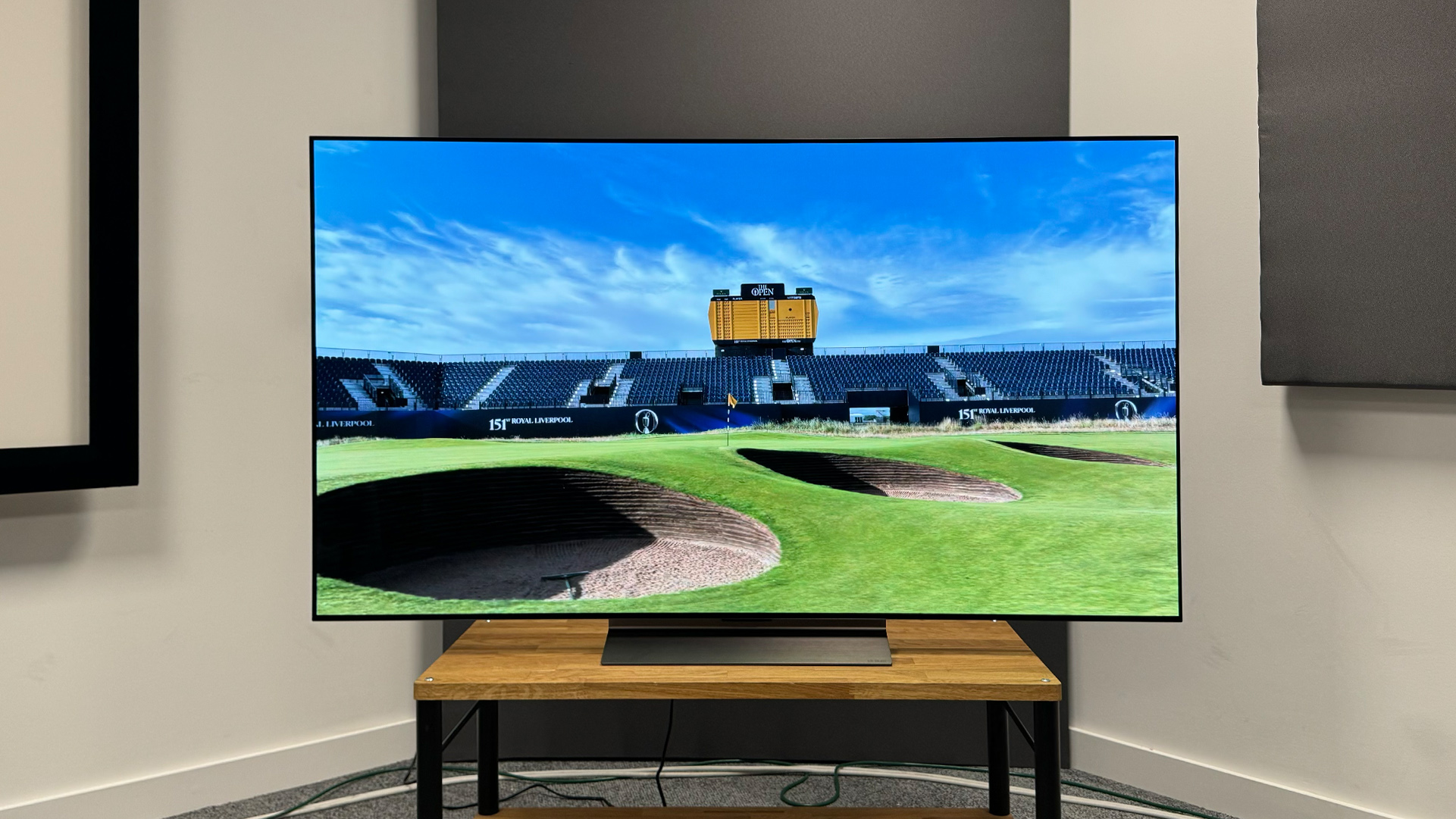
Screen size: 65in (also available in 42in, 48in, 55in, 77in, 83in)
HDR formats: HLG, HDR10, Dolby Vision
HDMI inputs: x4 (4 x 48Gbps HDMI 2.1)
Dimensions (hwd, without stand): 83 x 144 x 4.5cm
The C4 is a big step up on the C3 that preceded it, with much sharper, punchier pictures and much, much better sound. Design-wise it's a different beast to the Bravia 8, and while drastically better than its predecessor, its picture and sound can't quite match the Sony's. It is cheaper than the Bravia 8, though, which could swing it for many.
For
- Punchy, sharp, rich and vibrant, yet still natural
- Much improved sound quality
- Excellent UI and flawless gaming specs
Against
- Minor lack of shadow detail in SDR
- MLA tech would have been nice
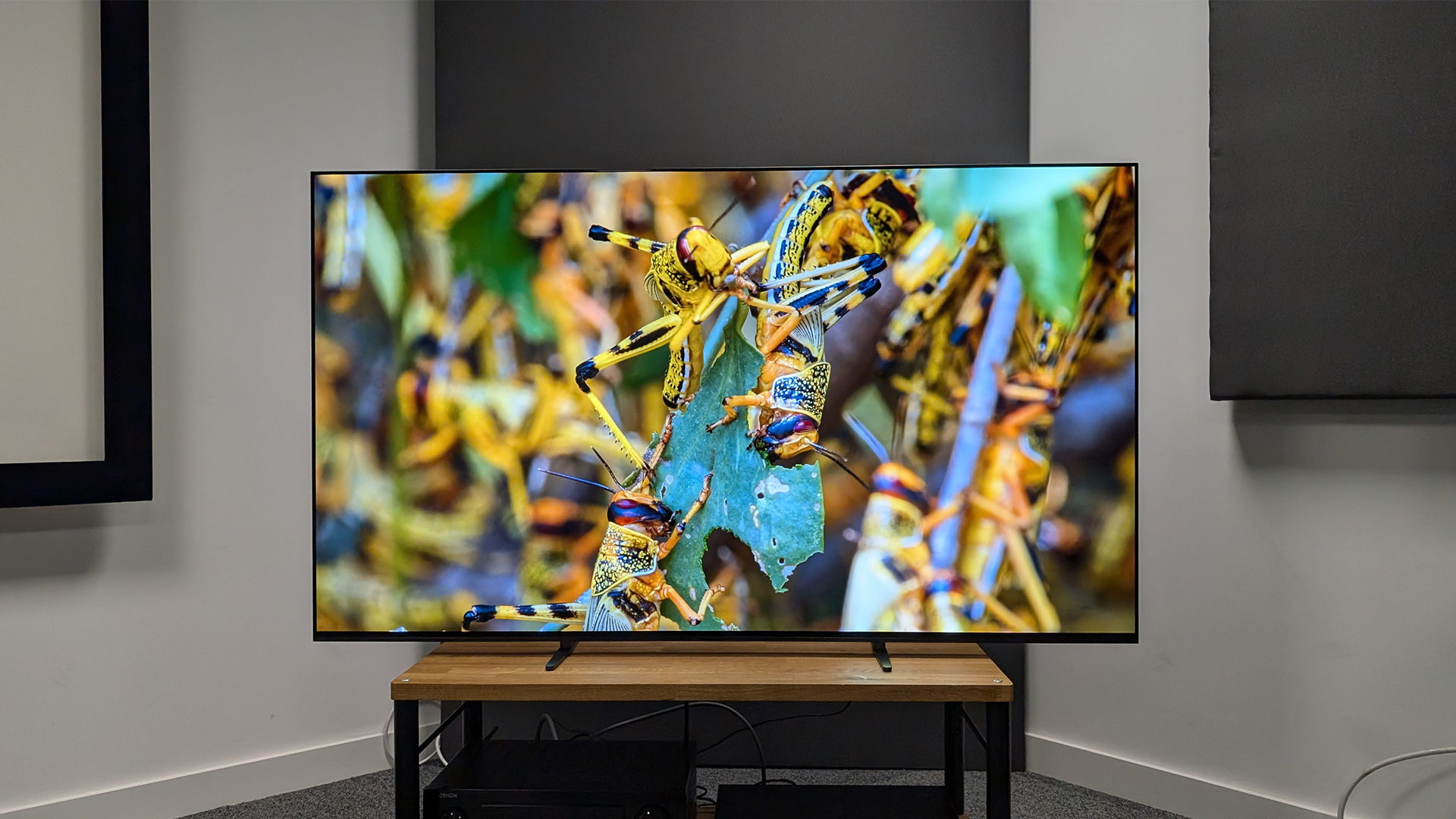
Screen size: 65in (also available in 55in and 77in)
HDR formats: HLG, HDR10, Dolby Vision
HDMI Inputs: x4 (2 x 48Gbps HDMI 2.1)
Dimensions (hwd, without stand): 83 x 144 x 3.7 cm
It might be pricier, but the Bravia 8 is the better performer in the crucial areas of picture and sound quality. The set itself looks more premium – as you hope it would, at this higher price – and the picture has more depth, exceptional levels of detail and a more impressive peak brightness. It makes for the more immersive viewing experience.
For
- Balanced, immersive picture
- Great motion handling
- Good audio by TV standards
Against
- Not a huge upgrade on last year’s model
- Good, not great upscaling
- Only two HDMI 2.1 inputs
LG's C-series models have long been the best step-down OLED TVs you can buy, until they weren't. Last year, a lack of significant improvements plus an on-form Sony led the Japanese giant's A80L to win Product of the Year at the What Hi-Fi? Awards. LG must have been fuming.
Now it's looking to win back its crown with the C4. On paper, it's again not a huge improvement on the previous model, but in practice it blew us away, earning the full five stars.
But Sony hasn't stood still either. Its Bravia 8 replaces the A80L, with a refined design, brighter image, new processor and better sound, scoring another perfect 5/5. It's going to be quite a fight...
Sony Bravia 8 vs LG C4: price
We've seen prices rise on all kinds of devices over the last couple of years, so it was a pleasant surprise when the C4 launched for a slightly lower price in the UK and Australia than the C3 did the year before. The US price was higher, but only just.
Even better news is that the discounts have been swift and substantial, so you can already pick up a C4 for much lower than the launch price. You can see the official launch prices below, followed by a live window of the best deals currently available, which you can filter by size.
- LG C4 42-inch: £1400 / $1499 / AU$2199
- LG C4 48-inch: £1500 / $1599 / AU$2499
- LG C4 55-inch: £1900 / $1999 / AU$3299
- LG C4 65-inch: £2700 / $2699 / AU$4299
- LG C4 77-inch: £3800 / $3699 / AU$5999
- LG C4 83-inch: £6000 / $5399 / AU$7999
The Bravia 8 also launched with lower prices than did its predecessor (the A80L), but those prices were a little higher than those of the C4. Like the C4, the Bravia 8 has already seen some good discounting, but it is generally a little more expensive than its LG rival. Previous experience with various models from both brands suggests that this will likely remain the case for much of the lives of these two TVs.
Below you will see the launch prices of the Bravia 8, followed by another live window that will show you the latest and greatest deals, which you can filter.
- Sony Bravia 8 55-inch: £2199 / $2000 / AU$3495
- Sony Bravia 8 65-inch: £2699 / $2800 / AU$4495
- Sony Bravia 8 77-inch: £3999 / $3900 / AU$6995
At face value, the LG undercuts the Sony for price, and we expect this to continue throughout the life cycle for both of these TVs. This is because LG tends to be more proficient at price cuts, while Sony sets tend to retain their value alongside the higher entry price.
** Winner: LG C4 **
Sony Bravia 8 vs LG C4: design
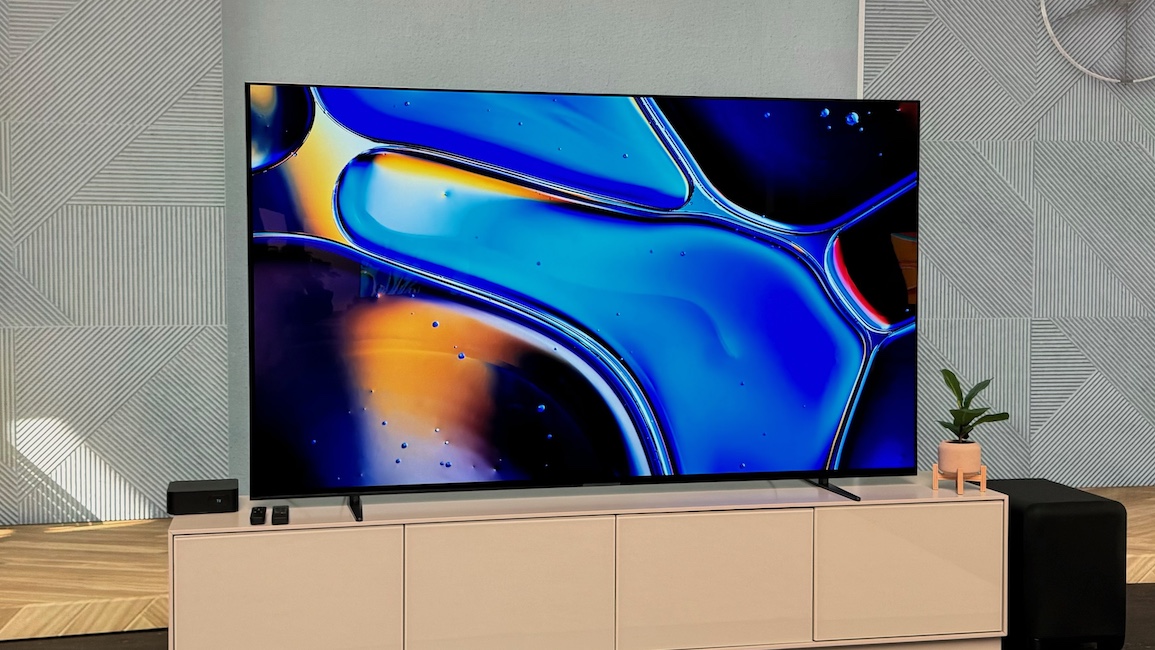
The 65-inch C4 looks a lot like the previous two C-series models – slim and attractive without being distracting. The chassis is only around half a centimetre slim, and at its thickest (the small section housing the connections, speakers and processing hardware), the TV is 4.7cm. That's thicker than the Bravia 8's 3.7cm, but the Sony is that thick all over, bar a recessed section for the ports.
The C4 is lighter than the Bravia 8 too, both with its stand (18.5kg to 23.2kg) and without it (16.6kg to 22.3kg). That makes it easier to manoeuvre (though you should only have to do it once, unless you move house) and to wall mount. Despite this relative lightness, it still feels solid and well made.
That goes for the stand too, which never feels flimsy under the weight of the TV. The only downside is that it doesn't leave room for a typical soundbar. The LG USC9S fits seamlessly with it, but there are far better models available.
The Sony Bravia 8 looks a lot like its predecessor, the A80L, complete with the winklepicker feet and ultra-slim bezel. Its feet now have a flat top to more easily accommodate a soundbar across the top of them, and can still be placed either close to the centre (to fit on smaller TV cabinets) or wide. They also have the option of raising up higher to fit a soundbar without obscuring the screen.
It's a more premium design than the C4, but then the C4 is slimmer (for the most part) and lighter, which could be a dealbreaker.
** Winner: Draw **
Sony Bravia 8 vs LG C4: features
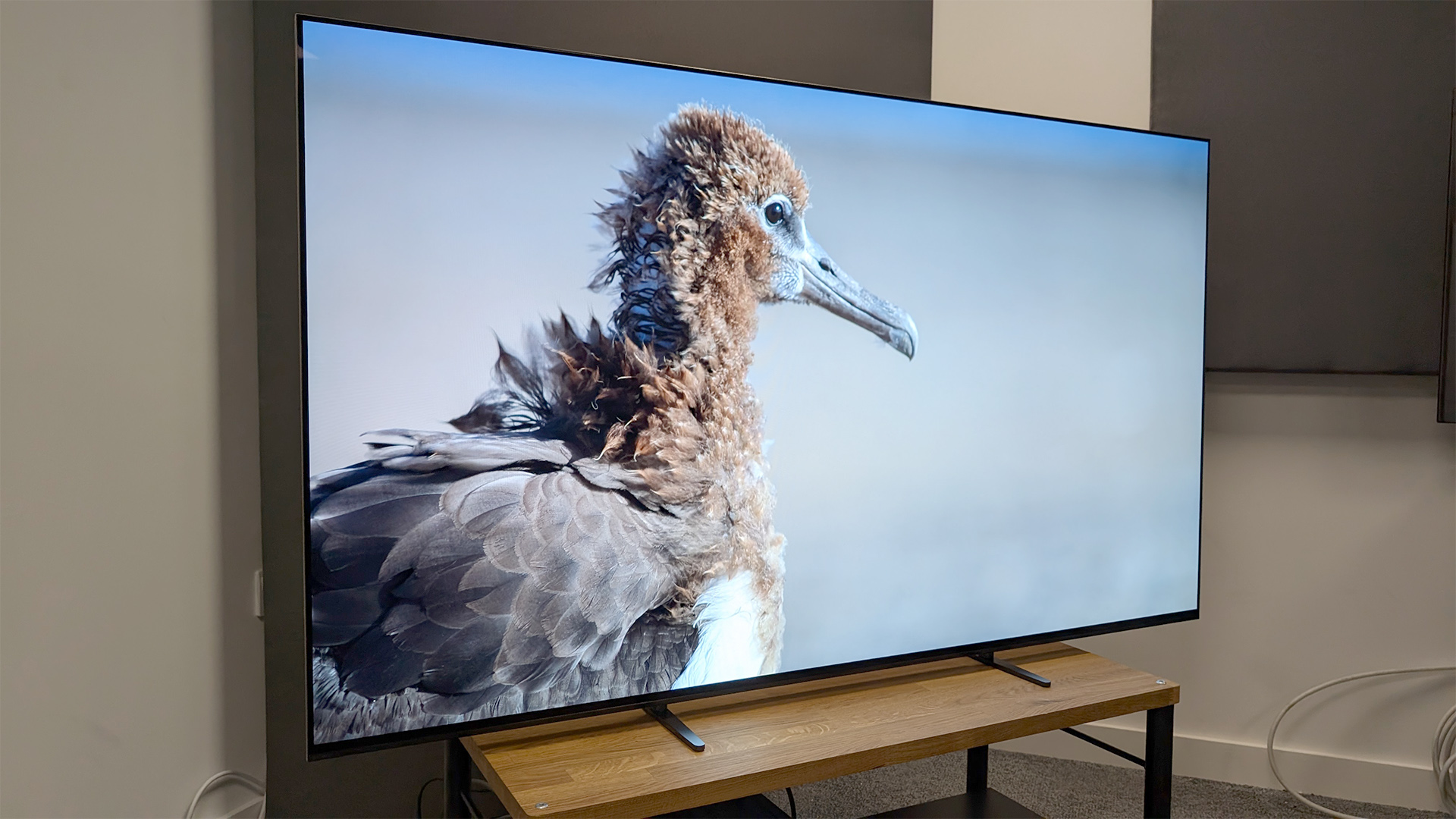
LG's C-series has long been the go-to for gamers unwilling – or unable – to shell out for a flagship TV, and that's still the case with the C4. Four HDMI 2.1 ports mean gamers with a soundbar plugged in can still get an uncompromised gaming experience from three consoles or gaming PCs hooked up at the same time, with no port switching required. The Bravia 8 only has two equivalent ports – that will be fine for most people, but owners of multiple consoles and/or gaming PCs who also have a soundbar will be better served by the C4.
The C4 has some new skills too, like full Nvidia G-Sync VRR certification (rather than a ‘G-Sync Compatible’ label) and support for refresh rates up to 144Hz (the C3 was only up to 120Hz) for the more hardcore gaming PCs. Dolby Vision gaming is also supported up to 144Hz, futureproofing it for when a games console is capable of outputting at such a high rate.
The C4 has an upgraded version of the Alpha 9 chip that powers the C3. This brings with it new processing features such as virtual 11.1.2 sound upmixing (up from the 9.1.2 of the C3) and enhanced voice remastering for greater dialogue clarity. It still doesn't support HDR10+, but seeing that it has the Dolby Vision, HLG and standard HDR10 formats of HDR, that's no biggie.
The Bravia 8 builds on the A80L's already stellar feature list. It has the same Cognitive Processor XR with XR Clear Image to improve 4K upscaling. Google TV is on board, with all the streaming apps you would expect in all their best audio-visual formats. You also get Sony's Bravia Core app for higher-bitrate streaming, along with 10 movie credits to spend on the service and 24 months' access.
Despite only having two HDMI 2.1 sockets, the Bravia 8 has some pretty good gaming specs, with 4K/120Hz, VRR and ALLM. It's also ‘Perfect for PlayStation’, so automatically calibrates HDR tone mapping for PS5 games, and it has a dedicated menu for quick access to gaming features.
The Bravia 8 supports Dolby Atmos audio, as well as the Dolby Vision, HDR10 and HLG formats of HDR – again, there's no HDR10+. New for this model is an updated Eco Dashboard (Eco Dashboard 2) which streamlines access to energy-saving features, and a rechargeable Eco Remote that's made from 80 per cent recycled material. This has a backlight too – the C4's doesn't – making it easier to use in cinema-style darkness.
** Winner: LG C4 **
Sony Bravia 8 vs LG C4: picture
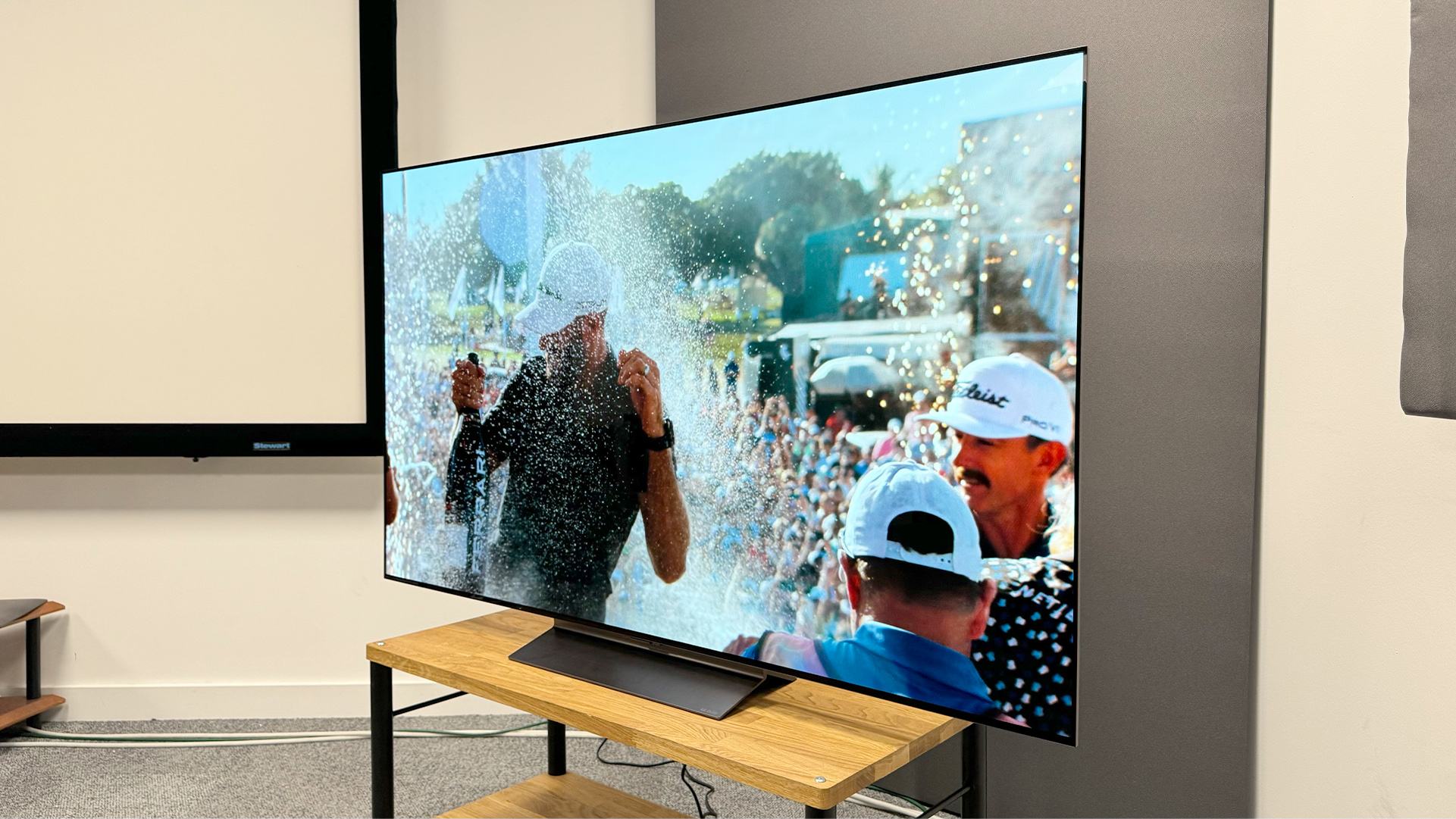
The Bravia 8 is less of a step on from the A80L than the C4 is from the C3. But then the A80L already set the bar quite high – it did win a What Hi-Fi? Award, after all. And the Bravia 8 is a worthy follow-up.
Its picture is beautifully natural, with even skin tones and wonderfully smooth motion. There's a bunch of dark detail to enjoy, and lots of depth, giving the image a real three-dimensional feel (aided by the sharpness of the picture). Peak brightness is impressive (Sony says it's 10 per cent higher than the A80L, and we can believe it), with a wider hue and more detail within the brightest elements.
There is some black crush in dark scenes when upscaling SDR, Full HD content, but it's a minor flaw in what is an otherwise stellar performance. As we wrote in our review, "the Bravia 8 is a fantastic TV that delivers great picture quality".
When we reviewed the C4 earlier this year, we were bowled over. Part of that might have been relief after the relative disappointment of the C3, but either way, the C4 is a fantastic TV.
It's astonishingly good, even in a brightly-lit room, with significantly more pop than its predecessor. Colours are vibrant without being exaggerated, and even the brightest parts of the picture are packed with detail. It's noticeably sharper than the rather soft C3, with more natural skin tones.
Turn off the lights, and it looks even better: it's sharper, more solid and has a lot more impact than the C3, and without any kind of unnatural processing. Detail is even more plentiful when viewed in these ideal conditions, and the overall image is warm and rich. The colours, while vibrant, remain balanced and natural, with subtly blended shades, and they retain their volume in dimly-lit areas. Motion is superb, too, with very little judder.
Ultimately, though, while the C4 is a superb TV and a big improvement on the C3, the Bravia 8 is better still, with even more punch, even better motion and a greater sense of three-dimensionality.
** Winner: Sony Bravia 8 **
Sony Bravia 8 vs LG C4: sound
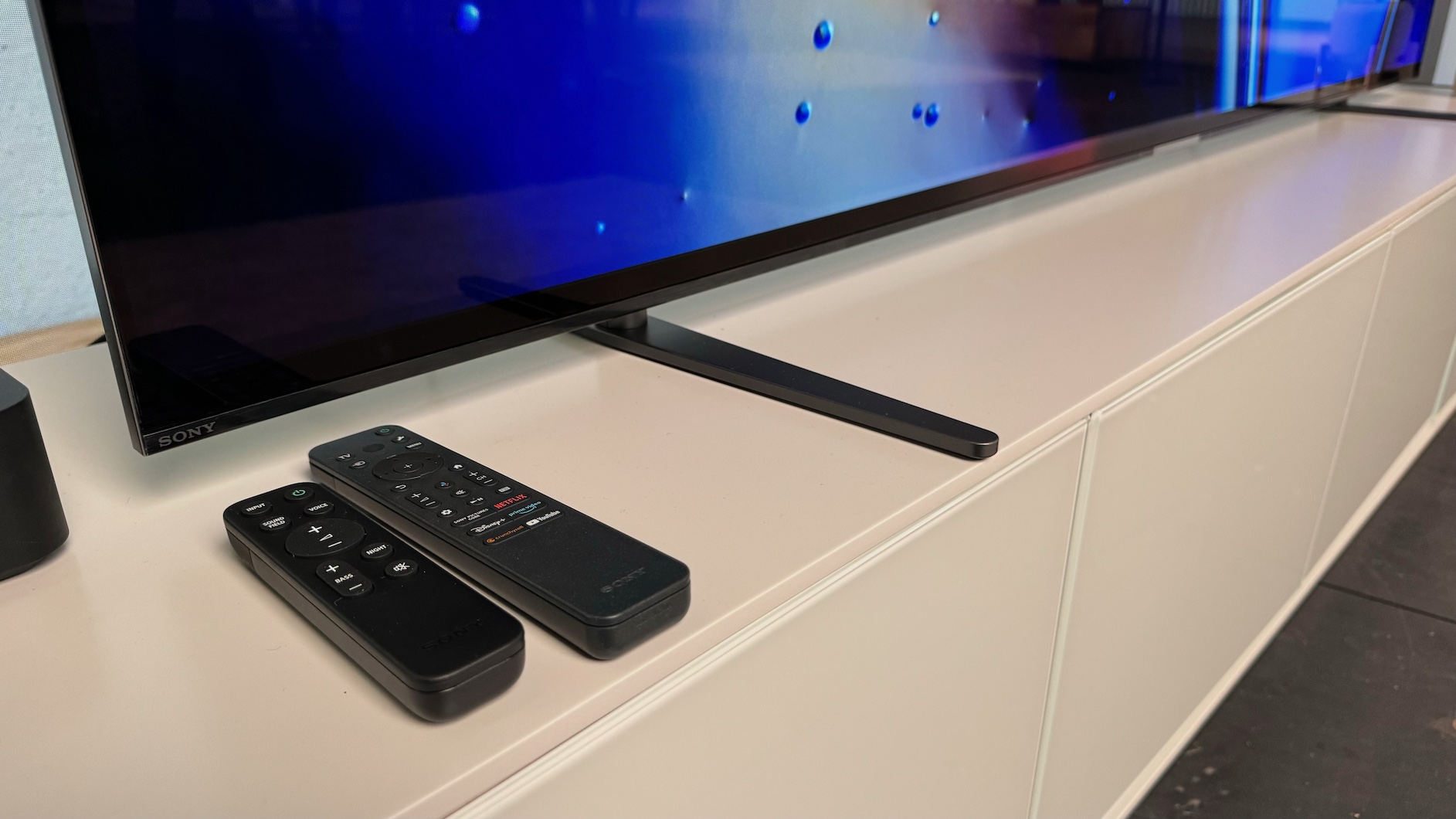
In recent years, LG's OLEDs have sounded pretty poor, but the C4 is a big improvement. It's much punchier and more dynamic than the C3, which sounded just plain dull. It does crackle a little with deeper bass frequencies, but less so than most similarly-priced rivals.
The AI Sound mode is nowhere near as harsh as it was on LG's 2023 TVs. It's still a little fuzzy when pushed to high volumes, but you can avoid this by keeping it below the 75 volume setting (which is still quite loud).
Sonically as well as visually, the Bravia 8 isn't a huge step on from the A80L. But it's still one of the better-sounding OLED TVs we've tested. Sony's Acoustic Surface Audio+ technology uses actuators to vibrate the whole screen and generate sound. While it's a little light on bass, it remains composed throughout, with no distortion or lack of precision at most volumes (push it high and it starts to come undone).
The Cinema sound mode adds a nice sense of space, and decent separation between the characters' voices, the film's soundtrack and background sounds. It also provides decent projection for dialogue purposes. It's better than most TVs' built-in audio systems at immersing you in the action, but a soundbar will still offer much improvement.
** Winner: Sony Bravia 8 **
Sony Bravia 8 vs LG C4: verdict
These step-down models prove you don't need to buy the most expensive TV around to get a fantastic experience. The C4 is the (slightly) more affordable of the two, and pips the Bravia 8 in terms of features, but the Bravia 8 is the better performer for picture and sound quality. In terms of design, they both have their strengths, but the Bravia 8 is a little more practical for adding a soundbar.
If your budget will stretch (or you see a great deal), the Bravia 8 is the better bet, but only just. And for those on a tighter budget, or wanting to save more to put towards a soundbar, the C4 won't disappoint.
** Overall winner: Sony Bravia 8 **
MORE:
Read our Sony Bravia 8 review
And our LG C4 review
LG C4 vs G4: how does it compare with LG's flagship TV?
Sony Bravia 8 vs A80L: which Sony TV should you buy?
Check out the best Sony TVs
Get the What Hi-Fi? Newsletter
The latest hi-fi, home cinema and tech news, reviews, buying advice and deals, direct to your inbox.
Joe has been writing about tech for 20 years, first on staff at T3 magazine, then in a freelance capacity for Stuff, The Sunday Times Travel Magazine (now defunct), Men's Health, GQ, The Mirror, Trusted Reviews, TechRadar and many more. His specialities include all things mobile, headphones and speakers that he can't justifying spending money on.

